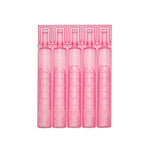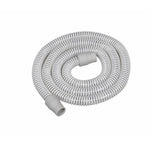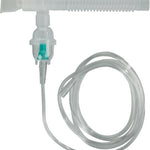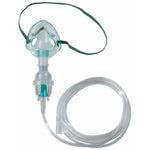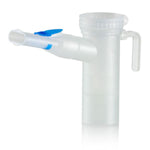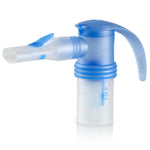You have no items in your shopping cart.
CPAP Questions and Answers
If you have been told you have sleep apnea, your doctor may have recommended CPAP. Although using a CPAP may be an adjustment, it can significantly improve your quality of sleep. If using CPAP is new for you, you may have several questions. Consider some of the following answers:
How does CPAP treat sleep apnea?
A CPAP machine delivers pressure to your airway while you are sleeping. The pressure prevents your airway from collapsing and obstructing the flow of air in and out of your lungs. Since your airway does not become blocked, you no longer will experience pauses in your breathing as you sleep. The quality of your sleep is often improved. Symptoms of sleep deprivation, such as headaches, fatigue and memory problems often decrease.
Will I always need to use a CPAP machine?
In some cases, if you lose weight, it can decrease symptoms of sleep apnea. Also, if you have surgery for sleep apnea, which corrects any anatomical abnormalities that leads to the condition, you may no longer need CPAP. But if symptoms of sleep apnea persist, you will need to continue to use your CPAP machine.
Are there side effects to using CPAP?
Some people may have certain side effects from using a CPAP machine. CPAP provides a constant flow of air to keep the airway open. But in some instances, the air is swallowed, which can lead to bloating. The flow of air may also lead to a dry mouth and throat. If you experience side effects with CPAP, talk with your doctor. In most cases, side effects can be decreased.
Is a CPAP machine noisy?
CPAP machines for home use are usually quiet and will not bother a bedmate. In fact, CPAP often eliminates snoring, so your bedmate may also get the rest they need.
What can I do if I have trouble adjusting to CPAP?
When you start using your CPAP machine, you’ll be fitted for a mask. Masks are available that cover just your nose or both your nose and mouth. Another option may be nasal pillows, which are small prongs that are placed in the nose like oxygen.
If you are having trouble adjusting to using CPAP, you may want to talk to your durable medical equipment company about trying a different size or type of mask. Also, the pressure settings on your CPAP machine may be adjusted, which may make it more comfortable. Do not adjust the pressure setting yourself without talking with your doctor. Lastly, since CPAP can be drying, you may want to use a machine that allows you to add humidification to moisten the air, which may ease dryness.
CPAP Questions and Answers
If you have been told you have sleep apnea, your doctor may have recommended CPAP. Although using a CPAP may be an adjustment, it can significantly improve your quality of sleep. If using CPAP is new for you, you may have several questions. Consider some of the following answers:
How does CPAP treat sleep apnea?
A CPAP machine delivers pressure to your airway while you are sleeping. The pressure prevents your airway from collapsing and obstructing the flow of air in and out of your lungs. Since your airway does not become blocked, you no longer will experience pauses in your breathing as you sleep. The quality of your sleep is often improved. Symptoms of sleep deprivation, such as headaches, fatigue and memory problems often decrease.
Will I always need to use a CPAP machine?
In some cases, if you lose weight, it can decrease symptoms of sleep apnea. Also, if you have surgery for sleep apnea, which corrects any anatomical abnormalities that leads to the condition, you may no longer need CPAP. But if symptoms of sleep apnea persist, you will need to continue to use your CPAP machine.
Are there side effects to using CPAP?
Some people may have certain side effects from using a CPAP machine. CPAP provides a constant flow of air to keep the airway open. But in some instances, the air is swallowed, which can lead to bloating. The flow of air may also lead to a dry mouth and throat. If you experience side effects with CPAP, talk with your doctor. In most cases, side effects can be decreased.
Is a CPAP machine noisy?
CPAP machines for home use are usually quiet and will not bother a bedmate. In fact, CPAP often eliminates snoring, so your bedmate may also get the rest they need.
What can I do if I have trouble adjusting to CPAP?
When you start using your CPAP machine, you’ll be fitted for a mask. Masks are available that cover just your nose or both your nose and mouth. Another option may be nasal pillows, which are small prongs that are placed in the nose like oxygen.
If you are having trouble adjusting to using CPAP, you may want to talk to your durable medical equipment company about trying a different size or type of mask. Also, the pressure settings on your CPAP machine may be adjusted, which may make it more comfortable. Do not adjust the pressure setting yourself without talking with your doctor. Lastly, since CPAP can be drying, you may want to use a machine that allows you to add humidification to moisten the air, which may ease dryness.


